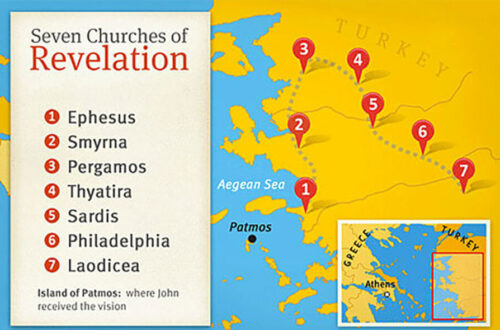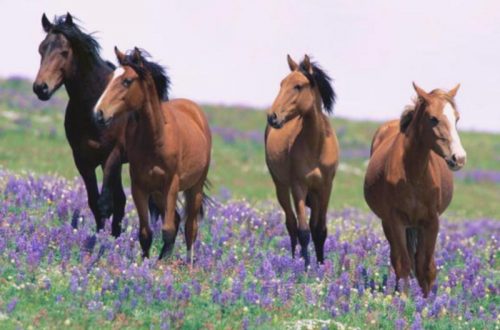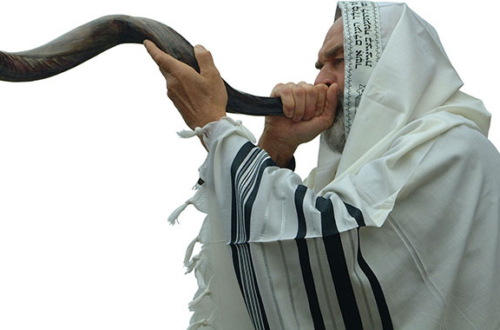The High-Stakes Wilderness
Leadership is broken because leaders are unbroken
Wilderness Wanderings Series:
Learning to Live the Zigzag Life
The older we get the higher our wilderness stakes become. We have far more at stake in our wilderness wanderings as we grow older than we ever had when we were young.
This comes as bad news to many because we think the wilderness is something we get behind us, that, once we get past it, we have a wide-open highway to a great life. Well, we do. It’s just that every great life includes high-stakes wilderness wanderings because, while the intensity of our wilderness times may come and go, they never really stop.
Many of us have been given the impression that once we get past our first wilderness experience, it’s over, and we have left it behind never to face it again, especially as we age. This is not true…
The first place we see this truth is in Abraham who was well over a hundred years old when he faced the highest stakes of his life as God told him to sacrifice Isaac. Moses was older than Abraham when he faced his greatest test and failed at Kadesh Barnea.
David was forced to run for his life and literally return to the wilderness when he was on the edge of old age because his son, Absalom, rebelled against him. Jeremiah, God’s faithful prophet, was carried away captive to Egypt against his will by his countryman when he was advanced in age.
Daniel was more than eighty years old when he was thrown into the lions’ den. Peter and Paul were both in their sixties when they were executed. John was past ninety when he was exiled to Patmos by the Roman authorities. The list goes on, but the principle is established: the older we get, the higher our wilderness stakes become.
Three Reasons for the High Stakes
Why is that true? For at least three reasons:
1. The realities of life
The wilderness is innate to life because of sin within us and all around us. Sin is a mental, emotional, relational, personal, and physical desert that scars every life. We were created to thrive, to be lush, green, fruitful, refreshing oases for each other, giving and receiving love in ways none of us now know.
The thorns and thistles that curse the earth are a picture of the thorns and thistles that devastate our spirits and the older we get the less we are able to deny the scars of sin. Our bodies wind down and we have less resistance to the drives of sin within us so we are unable to hide our struggles from ourselves and others.
The wilderness within us forces us to face the truth about ourselves: we are not who we think we are, not even close. We discover we are insensitive in ways we never realized, although those around us have known this for a long time. We learn that our short temper that we blame on others is destructive in ways we never imagined, although it is obvious to all who know us. Our wives grow increasingly frustrated with our constant complaining and start to say things to us we don’t want to hear, especially when they hit home. Our children make comments to us we try to deny but can’t if we are honest. We are denied the promotion we’ve been seeking for some time and when we nose about trying to find out why we didn’t get it, we hear hints and intimations of relational failings that anger us. “Why didn’t they talk to me?” we complain, but in our hearts we know we would have been defensive and closed and unwilling to listen.
So we face the great wilderness evaluation of our lives. We have been productive and effective and done much good, but we have to realize that when life catches up with us and we are looking at the highest wilderness stakes we have ever seen, the way we respond determines the ultimate impact of our lives. This is when we learn that only grace can water the wilderness.
The wilderness can be beautiful when the rains come and the blossoms burst forth, but the rains come so rarely that its beauty is fleeting at best. If we will allow the waters of grace to flow in the wilderness of our lives, we will burst out in the fruit of the Spirit and our lives will make the impact God intends for us. It may not be what we wanted it to be, but it will be beautiful, far more beautiful than anything we could ever produce because we will become what God wants us to be.
2. Our purpose as leaders
We are greatly confused about our purpose as leaders. Many of us, Christian and otherwise, think of leadership as a set of increasingly significant achievements, a high-powered to do list, that, once accomplished, will make us matter more and more so others will respect us. Certainly leadership is about getting things done, and we do earn respect through our achievements, but it’s about far more than that.
There’s another major dimension to leadership, the most important dimension followers and God measure us by, but we don’t always see it emphasized in the success manuals.
We must understand that one of the major reasons we are in leadership is to grow in public. Most of the leadership literature doesn’t mention this, so we’re not prepared to do this and do not recognize that the high stakes wilderness seasons we face, very often in public, are a vital part of God’s purpose for us as leaders.
Very few followers know how to grow; they are impressed by what they see us do as leaders and think that if they do what we do, they will be successful. Still, they recognize some significant flaws in our lives, but they are willing to overlook them because of the good they receive from us. But God isn’t willing to overlook them, so He calls us to face these flaws right out in public. Through our evident struggles in the high stakes wilderness, God transforms us and teaches our followers how to grow.
At the end of the day, our followers will remember this more than anything else about us because they learned to grow through our struggles. They watch us fail, wrestle, and then trust God in new ways, and become better leaders as a result. Growing in public is core to our purpose as leaders, and we can only do this as we navigate our high-stake wilderness season.
3. God’s aim for leaders
God has one singular aim for us as leaders, and it’s not success as most of us think. Again, I agree that success is far better than failure, but the question we must consider is what success is and who defines it. Ultimately God defines success as Christlikeness, and that is His aim for us. However, we must never mistake Christlikeness as passivity or uninvolvement in the affairs of life.
Christ-like people are not icons, plastic replicas of the real thing, living in a monastery, never getting their hands dirty. Jesus was radically engaged in people’s lives: He lived in the most restless part of the Roman Empire where violence was endemic and daily He saw Roman soldiers mistreat their conquered subjects.
While He never mistreated others, He himself was a forceful man on many occasions. Thus Christlikeness includes assertiveness, a willingness to make peace through confrontation while holding others accountable with a straight forwardness rather few have today. At the same time, He was the most submissive of men to His Father, and this is what God wants most from us as leaders: submissive assertiveness.
Remember this, even Jesus couldn’t become Messiah without entering into the ultimate high stakes wilderness.
So it is that the older we get the higher our wilderness stakes become. When we reach the remains of the day and all we have left to do is to sit and watch the sun set on our life, what will we see? A beautiful sunset on a shimmering sea? Magnificent snow capped mountains highlighted by the lingering rays of the setting sun? Or a furious dark storm of frustration, disappointment, and anger?
The answer to this question depends entirely on how we face our high stakes wilderness seasons. Will it be futility or will it be fruitfulness? It’s up to us.
From "The High-Stakes Wilderness" on www.leaderformation.org/blog
 About: The Broken Leadership Blog is about changing the leadership conversation from what we are doing with our hands to what God is doing through our hearts.
About: The Broken Leadership Blog is about changing the leadership conversation from what we are doing with our hands to what God is doing through our hearts.




